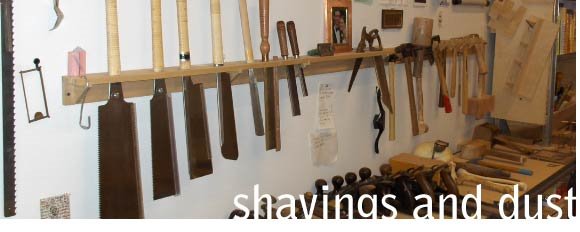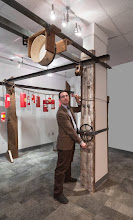A really well-written blog post has been making the rounds over the last few days that addresses "de-skilling" the arts. I suggest you go read it, it is not that long and it is really well written. A friend posted it to my FaceBook page asking what I thought about it, and I thought I should put my response over here as well to make sure I could get to it again:
"Well,
I have a lot of thoughts about it. I think it is very well written,
and presents the situation in a refreshingly neutral way. Of course I
(like many of my colleagues) do my fair share of fist-shaking and
rending of garments and bemoaning the loss
of haptic experience. But the reality is that generational experiences
have always differed (in the "I don't see what is so all-fired exciting
about this new-fangled 'pencil' all the kids are talking about! It's
just a phase. Who needs that kind of flashy gadget?!?" sense).
I
am interested to see how the generation that I am teaching now figures
out to process the world. I process a lot through touch, you see. The
feel of material in my hands, the way a plane feels when it moves across
the top of a piece of wood, the vibration of the back of a guitar
through my skin and against my rib cage. This is how I process the
world, and it makes sense to me.
But
then it makes sense to me that there are whole steps and half steps on a
piano keyboard and nothing in between, but a Japanese musician would
take real issue with that. They would be aware of quarter steps between
each whole note and the sharps and flats on either side, and they are
perfectly correct given their understanding of and filters on the world.
So
what does this mean? Who knows? But we have been genetically humans
for many hundreds of thousands of years, and have had new-fangled
inventions like writing and clothing and farming and steel and
electricity and houseplants and rugs and ice cubes for a tiny tiny
fraction of that. So NONE of us know what it means to us to have
computers.
All
I can do as an educator is guide my students as best as I can to a
broader understanding of the world they are moving through. I do that
by showing them how I work with my hands, but often they show me their
ways as well, and I think we are both bettered by that process.
In
the end, I guess I think two things: We can not put the digital genie
back in the bottle even if we want to. And progress is always made by
engaging in thoughtful conversations across boundaries. In this case it
is across generational boundaries, I think."
There is a tendency to be over-glib on FaceBook, but the underlying sentiment is one that I have been thinking about quite a bit over the last year as I have been tasked with leading a group of faculty who are putting together a First Year Curriculum for the Design School at the university where I work.
More later I hope.
Subscribe to:
Post Comments (Atom)


No comments:
Post a Comment